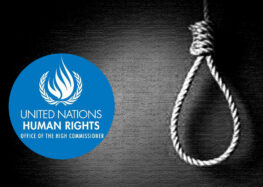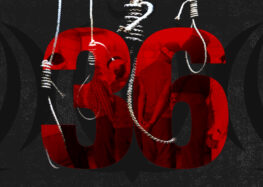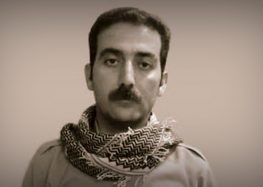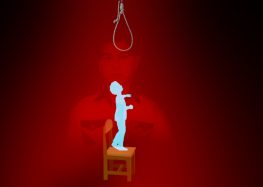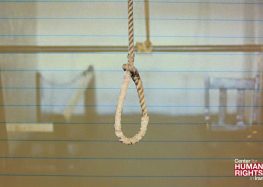Head of Iranian Judiciary’s Human Rights Council Defends Wave of Executions
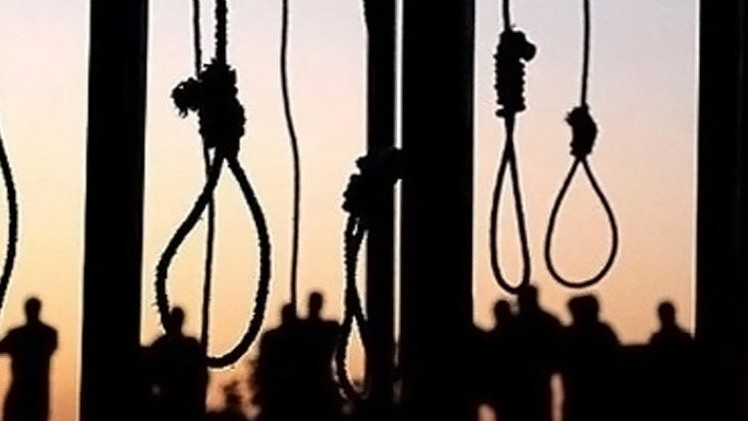
In less than a month, between August 2 and August 27, 2016, at least 37 prisoners were executed in Iran. Shortly afterwards, the head of the Iranian Judiciary’s Human Rights Council, Mohammad Javad Larijani, claimed Iran was doing members of the international community a favor by executing drug traffickers.
Many, though not all, of the victims were convicted of drug-related crimes, which do not meet international standards regarding the possible application of capital punishment only for the “most serious crimes.”
“[The United Nations Special Rapporteur on Human Rights in Iran] Ahmed Shaheed and Western countries should be thanking Iran because narcotics produced in Afghanistan end up in Paris, Berlin and Washington,” said Larijani on September 1. “But instead of praising us, they are condemning us.”
In addition, the UN has noted serious concerns regarding the denial of due process in Iran, including cases in which capital punishment has been carried out.
On August 2 Iran executed at least 20 Kurdish Sunni prisoners at Rajaee Shahr Prison in the city of Karaj. Many of these men were convicted of moharebeh (enmity against God) for their alleged membership in a radical Sunni Islamic group. Despite claims by Prosecutor General Mohammad Javad Montazeri that due process was carried out, family members of the victims and sources close to the cases said many of the executed prisoners were blocked from using lawyers of their choice and were quickly prosecuted in secret trials based on charges brought by the security establishment and confessions obtained under torture.
On August 9 five Kurdish prisoners were executed in Urmia Central Prison while 12 were executed in Karaj Prison. All of the prisoners except Mohammad Abdollahi were executed for narcotic-related charges. Abdollahi was charged with moharebeh for his alleged membership in a Kurdish political party; he insisted that he had obtained a membership card from the group so he could legally work to support his family.
The Chairman of the Legal and Judicial Affairs Committee in Parliament Rouhollah Hazratpour said on August 21 that Iran currently has “4,500 death-row prisoners in legal limbo in the country and we must think of a solution for them.”
UN Rapporteur Ahmed Shaheed issued a statement on August 20 describing the executions as a violation of international law. “It is also troubling that courts continue to issue death sentences in trials that not only breach international fair trial standards but even domestic due process guarantees,” he said.
On September 1, in an interview with the Judiciary’s official news service, Mizan, Larijani defended the executions.
“These accusations [by the UN Special Rapporteur] are not new. We have a set of laws by which we severely punish those who play a major role in trafficking drugs and in destroying the lives of our young people,” he said. “These punishments may be life in prison or executions.”
Another senior Judiciary official has, however, admitted that capital punishment has not served as an effective deterrent against drug trafficking.
“Punishing drug traffickers with the death penalty has not been a deterrent so far and we have expressed this to the judiciary chief in writing,” Judiciary Deputy in Charge of Crime Prevention Mohammad Bagher Olfat said in an interview on August 27. “Those who are being executed are not the real traffickers; they don’t get involved in transporting drugs. Instead they pay a small amount to those who don’t have enough income [and make them carry out the transportation.]”
Call for Investigation
Twenty-two human rights organizations, including the International Campaign for Human Rights in Iran, called for an immediate halt to the executions on August 16 “including against Kurds and other minority groups” and for the United Nations Human Rights Council to investigate the alarming use of the death penalty.
“One focus of the investigation should be the extent to which executions are being carried out as a means to silence political dissent and free association in the country,” said the joint statement.
The Campaign has confirmed the names of ten of the victims who were hanged in Rajaee Shahr on August 2: Bahman Rahimi, Mokhtar Rahimi, Yavar Rahimi, Arash Sharifi, Kaveh Oveisi, Kaveh Sharifi, Ahmad Nasiri, Behrouz Shahnazari, Taleb Maleki and Shahram Ahmadi.
On August 8, seven death-row prisoners were moved to solitary confinement in Orumiyeh Central Prison in preparation for their execution. The following day, prisoners Parisa Aghaie and Tohid Pourmahdi were spared, but Jahangir Razavizadeh, Jebraeel Kanani, Kamran Pourrafat, Amir Azizi and Mohammad Abdollahi were hanged.
Abdollahi’s lawyer, Mostafa Ahmadian, told the Campaign on August 7 that he requested a stay of execution for his client before Abdollahi was killed.
“There have been many instances of blatant violations of the law in Abdollahi’s case that I am willing to discuss with any relevant official,” he said. “Initially the judicial investigator had issued an order to nullify my client’s prosecution. But the judge unlawfully pursued the case and the prosecutor agreed to go ahead with the unlawful process. In addition, there is ample evidence that suggests my client did not resort to using a weapon and played no role in the charges issued against him….”
The names of nine of the 12 prisoners who were executed in Karaj Prison on August 20 are: Alireza Madadpour, Bahman Rezaie, Arman Bahrami, Alireza Assadi, Mohsen Eslami, Mehdi Rostami, Amir Sorkhah, Alireza Sorkhah and Hossein Bayrami.

